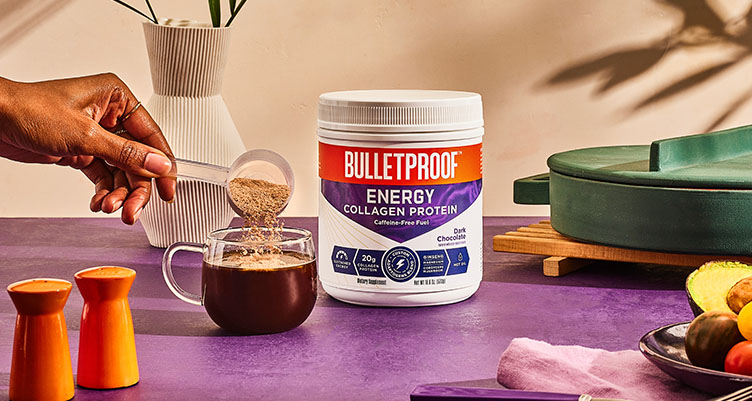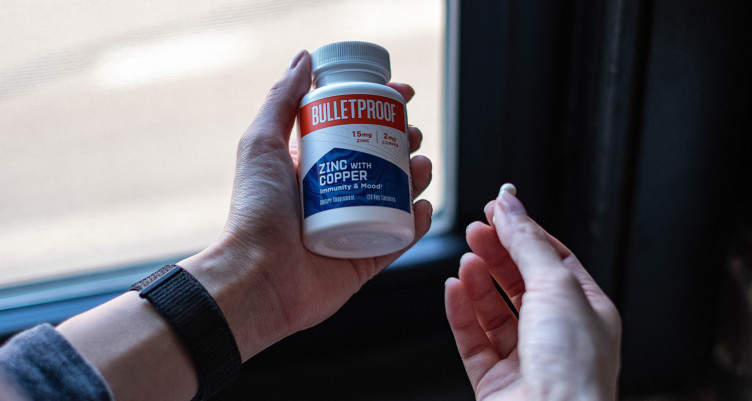What Is Bioavailability? How to Make Sure Your Supplements Actually Work

- Bioavailability refers to how efficiently your body can use a nutrient. If you take supplements and want them to work, bioavailability is a big deal.
- Some nutrients compete for absorption or block absorption of other nutrients, so timing out when you take your supplements is key.
- Learn what to look for (and what to avoid) in order to get the best value and most absorption from your supplements.
If you take supplements and want to get what you’re paying for, bioavailability is a big deal. How do you know your body will be able to absorb and actually use a supplement? What if the fillers that make the supplement easier to consume are actually causing you harm? These questions are tied to the idea of bioavailability, or how efficiently your body can use a particular nutrient.
Read on to learn what is bioavailability, different types of bioavailability and what to look for when you shop.
What does bioavailability mean?

Bioavailability refers to how efficiently your body can absorb and use a nutrient. While this seems like a simple concept, it gets really complicated when you consider all the barriers between the molecules in that supplement and the place your body needs to put that nutrient to use.
To complicate the matter, the bioavailability definition is different in the medical community. Many medical authorities define bioavailability as how quickly the substance gets into the bloodstream — suggesting that once it’s in the blood, the job is done.[1] This doesn’t take into account whether the substance is actually getting in the right form to the right location in your body so it can get to work.
Here are some important questions to ask when you’re shopping for supplements. Below, you’ll find answers to each of these questions.
- What’s the most absorbable form of supplement?
- What’s the purest form with the least amount of filler?
- Do I take the supplement with or without food?
- Do I have to take the supplement away from other supplements, or at certain times of day?
Is it the most absorbable form?

Some supplements come from different natural sources. For example, omega 3 supplements usually come from fish oil. There are many different types of fish oil, but in one of them—krill oil—the polyunsaturated fats are packaged as phospholipids, which studies show is highly bioavailable.[2] (That’s one of the reasons we love Bulletproof Omega Krill Complex.)
In fish oil, on the other hand, the fats are typically packaged as triglycerides and have to undergo additional processing before they can be used by the body.
The same idea applies to vitamin B12. All forms of vitamin B12 need to be broken down to cobalamin for absorption. However, owing to some genetic differences, a small number of people may not be as able to break down cyanocobalamin, a non-bioidentical form of B12, very efficiently.[3] Plus, bioidentical forms of B12 may actually be retained by tissues, like the liver, better than non-bioidentical forms.
What about magnesium supplements? If you want to use magnesium for a brain and nervous system boost, reach for magnesium threonate instead of magnesium oxide. That’s because magnesium oxide is best for regulating your digestive tract, while magnesium threonate supports memory and learning.[4][5]
The bottom line: Vitamins, minerals and supplements come in different forms. Do your research, talk to your doctor and choose the most absorbable dose that works for your needs.
Related: The Top 10 Supplements That Everyone Should Take
Is it pure?

“Purity” is another way of asking, how much of the vitamin or nutrient are you actually getting in your supplement?
Medium-chain-triglycerides (MCTs) make a good example of the case for purity. While coconut oil contains MCTs, you have to eat a lot of it to get a significant amount. Instead of eating spoonfuls of coconut oil, reach for C8 MCT oil. It’s the most ketogenic MCT, so you get four times more ketones than coconut oil alone. (This is what you get with Bulletproof Brain Octane C8 MCT Oil.)
There’s a value equation in considering the level of purity of your supplements. Often, other substances (like fillers, carrier powders, anti-caking agents and colors) are added to make the pill, liquid or powder you’re taking easier to eat, ingest or tolerate. For example, straight fish oil tastes … intense.
In the case of powders and liquids, consider how much you’re paying to get the amount of the supplement you want. If the bottle is mostly filler and the actual nutrient fills only 25% of each spoonful, you may not be getting your money’s worth.
Some of these fillers can also potentially cause harm. One filler added to supplements to help make them solid — titanium dioxide — is linked to digestive problems and inflammation in rodent studies.[6] Other fillers can be problematic if you have food sensitivities or dietary restrictions. If you’re gluten- or dairy-free, make sure your supplements are, too.
The bottom line: Choose a supplement in the purest form, with the fewest fillers. Read the ingredient label for clues into what else is in the package.
Related: 6 Best Workout Supplements to Supercharge Your Training
How is it absorbed?
Absorption is your body’s process of drawing nutrients across the wall of the small intestine and into the bloodstream. Some supplements can immediately be put to use, like C8 MCT oil, which crosses the blood-brain barrier to power your brain within minutes.
Processing before absorption

Other supplements need to be metabolized — broken down by the body into smaller parts. In the case of collagen protein, it gets metabolized into amino acids that your body uses to create collagen and other proteins your body needs.
To reduce the time to absorption, choose hydrolyzed collagen peptides. While the name might be unfamiliar, “hydrolyzed” means that the collagen has been broken down to make it much easier for your gut to absorb.
Related: What is Collagen Protein? Your Complete Guide to Collagen Peptides
Interactions can block or increase absorption

Some vitamins increase absorption, and others compete with each other for absorption. For example, vitamin C boosts your body’s natural collagen production. It also helps you absorb iron, but it blocks your body’s ability to assimilate copper.[7]
Food can either help absorption, or get in the way. For example, phytic acid is found in nuts and seeds, and it can actually block your absorption of iron, zinc and calcium. A handful of raw organic nuts is a delicious snack, but don’t eat them when you take your supplements.[8]
Related: How to Take Supplements While Fasting
Have fat-soluble vitamins with food

Make sure you take fat-soluble vitamins A, D, E and K in the morning with a cup of Bulletproof Coffee or with a fat bomb after dinner. Not only are fat-soluble vitamins stored in your fat, but they also need to team up with fats in your intestine in order to get through the intestinal wall and be absorbed by your body.
According to a study from the Linus Pauling Institute at the University of Oregon, the blood indicators of people who took a vitamin E supplement while eating a bowl of cereal showed a significant increase in vitamin E, while those who took the supplement with water showed almost no boost in vitamin E.[9] Another study shows that vitamin D is best absorbed with 11 grams of fat — about the same amount of fat in a tablespoon of grass-fed butter.[10]
The bottom line: Some supplements have to be broken down before they are absorbed. Some vitamins and minerals compete for absorption, while others help your body absorb key nutrients. Take fat-soluble vitamins with food to boost absorption.
With this new information, take another look at your supplement stack. You may want to change the time of day that you take your supplements, or you may want to experiment with a different product altogether. To learn more about key vitamins and nutrients, check out the Ultimate Guide to Supplements.
Sign up for early access to sales, product launches, the latest Bulletproof news and more!



